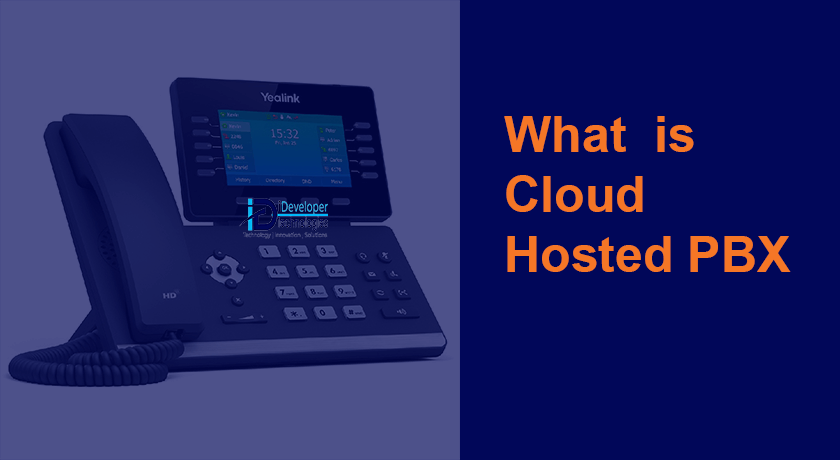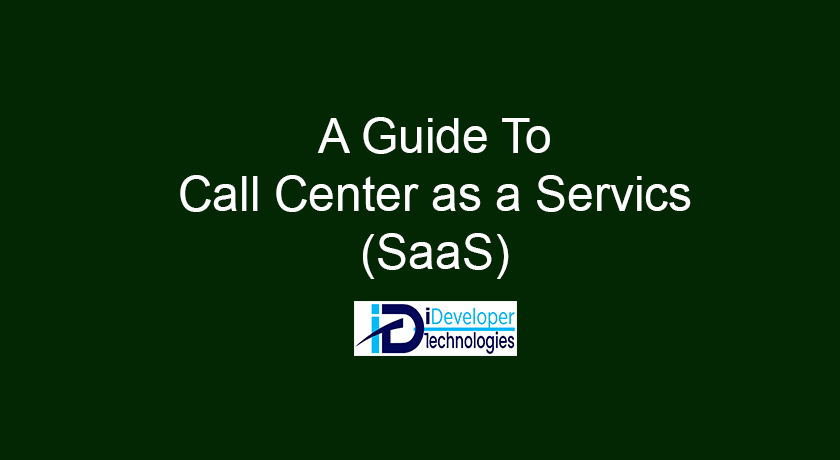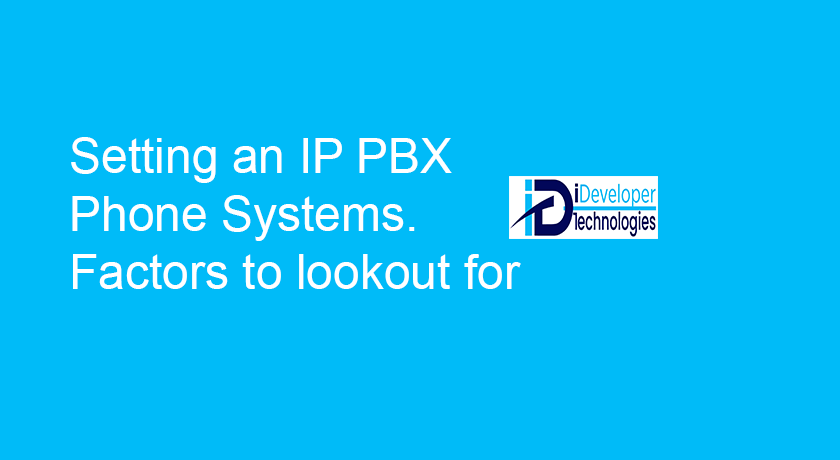Cloud PBX is revolutionizing business communication. By leveraging the internet rather than conventional phone lines,…

Call Center for Small Business: Why SMEs Need One
Business phone systems are becoming an essential component of all businesses, particularly Call Center for Small Businesses.
A few years ago, the industry was dominated by outdated phone systems that required a lot of hardware and cables. However, small enterprises found it difficult to budget for both the substantial initial outlay and ongoing upkeep.
Today, however, things are completely different as both small and large enterprises easily adapt and employ call center solutions for small businesses.
Call Center solutions for small businesses are now essential since the “customer-centric” strategy is being heavily utilised by firms these days and “Phone Calls” are the most popular form of communication chosen by clients.
Let’s explore this idea in more detail.
A Small Business Phone System: What Is It?
A communication system made up of office phones and mobile phones that are connected for voicemail, call handling, call transfer, and multilevel IVR is known as a phone system for small enterprises.
Both the Internet and the Public Switched Telephone Network (PSTN) can be used to operate this kind of phone system.
These phone systems, which are tailored for small and medium-sized enterprises, provide affordable and expandable solutions to enhance communication and boost an organization’s overall efficiency.
How Do You Operate a Business Call Center?
Within an organisation, call center for small business connect and handle incoming and outgoing calls.
The contact center software system answers calls and directs them to the appropriate party, which may be a department or an extension.
Additionally, these systems manage calls by utilizing different capabilities as needed, such as voicemail, call queues, etc. Employees can benefit greatly from business phone systems’ internal collaboration features, which include call conferences and call recording.
Why Is a Call Center Required for Small Business?
Expert Appearance
In order to establish confidence and trust with clients, a call center solution can be a crucial part for small business system.
Businesses can present a professional image to their audience by having a dedicated phone number. IVR and customized voicemail greetings are two further features that add to the impression of dependability.
Improved Client Support
Incoming calls that contain business enquiries are effectively handled by a contact center. A business can make sure that no calls go unanswered or missed by putting in place tools like call forwarding and routing. Increased client pleasure and loyalty result from this.
Enhanced Cooperation
No matter where they are located, company personnel may collaborate internally more easily thanks to features like phone transfer and conference calls. This promotes increased productivity and better teamwork.
Read: Guide to Outbound Call Center Software Solution for Businesses in Kenya
Flexibility and Scalability
Small businesses have different demands and expectations as they expand. Call center solution are made to be flexible enough to accommodate small business.
These modifications enable organisations to add or remove phone lines as needed.
Savings on Costs
Because they are cloud-based, modern business contact centers are a very popular choice for small organizations. Modern call center systems are easily affordable for small to medium-sized businesses, in contrast to traditional phone systems that rely on hardware.
Small Business Phone System Types
There are many different kinds of phone solutions for small businesses; the four primary kinds are described below:
Conventional Telephone Systems
For many years, PSTN systems, also known as Public Switched Telephone Networks, have been the industry standard for phone systems. Physical copper wires that carry voice signals via a phone network are the foundation for these systems’ operation. These on-premises systems provide dependability and high-quality calls. Their setup necessitates a large amount of equipment, and their features, functionality, and scalability are restricted.
systems’ operation. These on-premises systems provide dependability and high-quality calls. Their setup necessitates a large amount of equipment, and their features, functionality, and scalability are restricted.
Cloud-Reliant Telephone Systems
These phone systems, also known as hosted phone systems, are more affordable and flexible than PSTN systems. In this case, physical phone lines are not needed because the phone systems operate over the Internet.
A third-party provider manages and keeps up the complete phone network. Advanced features like voicemail to email, auto attendants, call routing, and more are available with these phone systems.
Cloud-based business phone systems are often utilized by small businesses that might not have a huge workforce or various offices.
Digital Phone Systems
A subset of cloud-based business contact center systems designed specifically for small organizations are virtual phone systems. These solutions are a great option for newly established small businesses.
These systems operate over the internet and don’t require any hardware, just like cloud phone systems. Voicemail, IVR, call forwarding, virtual phone numbers, and other functions are among the most helpful features provided by virtual phone systems.
Phone Systems with IP-PBX
These phone systems integrate VoIP technology with the advantages of conventional PBX phone systems. These on-premise systems are appropriate for large organizations.
IP-PBX phone systems provide a range of sophisticated features and operations, including call transfer, call conferencing, IVR, and more.
Keya Elements of a Call Center for Small Business to consider
Call Forwarding
It is among the most important and practical components of commercial phone systems. Call routing routes incoming calls to the right person based on predetermined rules that the company has established.
This results in a considerable reduction in call waiting times, which raises customer satisfaction even further. Thus, businesses don’t have to worry about large call volumes because incoming calls are handled effectively.
READ: Top 5 Call Center Monitoring Software
IVR with many levels
The ability to set up a hierarchical menu system for the company is another crucial function of the business phone system. An IVR with numerous levels allows callers to select the solution that best suits their needs.
They are guided via the menu by the IVR system to the appropriate agent or department. Additionally, it enhances the efficiency of call processing and calls flow.
Voice to Text
This is another useful function of a call center for small business, which aids in voice prompt recording for the IVR menu. The entered text is converted into audio or spoken words in various voice tones by this system in order for it to function.
A company can select the converted audio tone that most closely matches its voice prompts by entering the desired IVR menu.
To call buttons, click them
Websites, email signatures, and other marketing communication materials frequently employ them. Click-to-call buttons provide businesses with an easy and efficient way to connect with their customers.
Consumers can start a call by clicking the button on their device, eliminating the need for them to look up or call the phone numbers of businesses.
Conversation Recording
An additional important characteristic of Call Center for small business is that it facilitate the tracking and analysis of interactions between customers and agents.
This feature allows calls to be recorded and saved for later use. Both new and seasoned agents can receive instruction from these recordings. The ability to use phone records as evidence in court cases when a dispute emerges is another crucial application for them.
The phone number for business
It is simply necessary to have a dedicated phone number for your organization in order to project a professional image. Additionally, it guarantees that the communications you have for professional and personal use stay apart.
There are several varieties of business phone numbers, including DID, Vanity, and Toll-Free numbers. Depending on what your firm requires, you can select one or more numbers.
Smartphone App
A firm can achieve amazing results using a mobile app for its corporate phone system. From their mobile devices, agents and employees may interact with their jobs, answer calls, and complete tasks. Thus, users are spared from having to launch the web application every single time. This encourages productivity and facilitates movement.
Read: Top Benefits of a Call Center Software
Intelligent Dashboard
Things are made much easier with a company phone system that has an intelligent and user-friendly dashboard. With a few clicks, users may obtain real-time business analytics. Making data-driven decisions and examining call trends become incredibly simple.
Voicemail
When no one is available to answer the phone, callers can use this feature to record and leave voice messages. Therefore, voicemail features guarantee that agents can promptly respond to voicemail messages and that no crucial calls are missed.
There is flexibility in checking voicemail messages because they can be accessed via small company phone systems or supplied as email attachments.
Forwarding of calls
This function makes it possible for incoming calls to be automatically forwarded to different phone numbers. Employees that work remotely will find it especially helpful as it allows them to guarantee that calls are returned regardless of their availability or location.
How Do I Configure a Phone System for a Small Business?
While setting up a small business phone system may seem difficult, there are some questions you should be able to get the answers to. Among the important questions you should ask yourself are:
- What does your business need? How many people work for you?
- Which kind of small business phone solution is best for your company?
- What characteristics are essential for a small business phone system?
How Do I Pick Call Center Software for my small business?
Always pick a reputable service provider to ensure you have the greatest small office phone system. This is crucial since the greatest services available will be guaranteed by a reputable provider. The following are some things to remember:
1. Assure your seller provides round-the-clock customer care.
It is crucial that your vendor offers technical support, since you may require it in the event that a technical issue arises or you require assistance with anything related to the business phone system.
2. Make sure Service Level Agreements (SLAs) guarantee a genuine uptime
It is important to know the uptime guaranteed by your vendor. So make sure you check the SLA and set your expectations as high as possible. Cloud-based call center solution guarantee 99.99% uptime.
3. Ensure Compliance with Industry Standards
Adhering to industry standards is crucial to ensure that the phone system for small business is capable of securing your business data. Check with your vendor whether they comply with the industry security standards like HIPPA, GDPR, etc.
4. Check customer reviews, feedback, and recommendations to estimate the real value of your vendor.
A little research can do wonders when choosing the right vendor. Look for online reviews about the product, see what people liked, and the problems they encountered while using the phone system. This way, you will be able to find that one phone system that really aligns with your business.
What Is the Price of Small Business Phone Systems?
These days, small office phone systems are really affordable. The only cost of using these systems is a subscription fee, which can be paid either monthly or annually as it is hosted by service providers who also take care of any needed maintenance.
In Conclusion
There are several factors to consider when selecting a small company phone system, including features, pricing, and your specific needs. Before deciding on the best course of action, you must thoroughly consider all the options.



